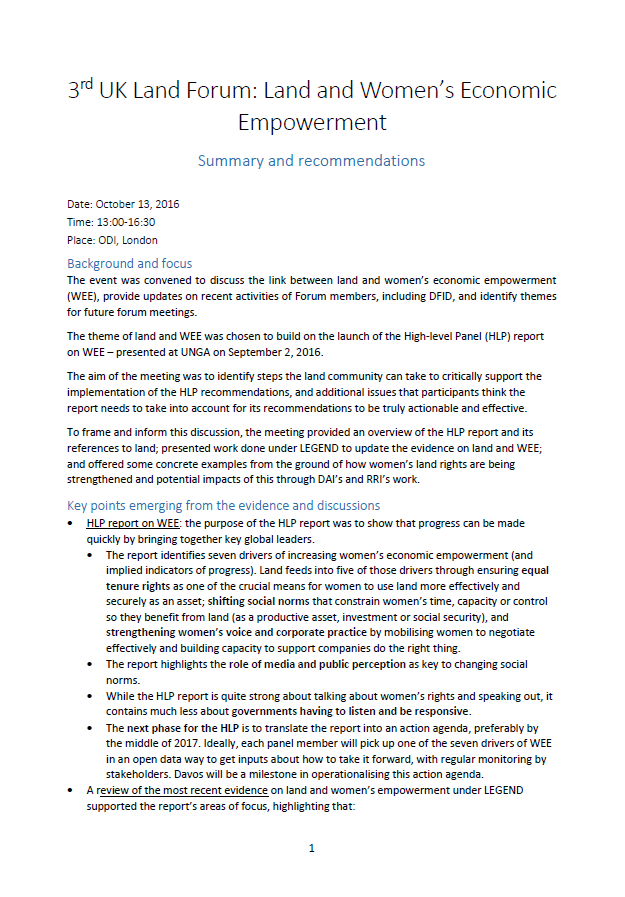The Overseas Development Institute (ODI) is the UK's leading independent think tank on international development and humanitarian issues.
Mission
Our mission is to inspire and inform policy and practice which lead to the reduction of poverty, the alleviation of suffering and the achievement of sustainable livelihoods in developing countries.
We do this by locking together high quality applied research, practical policy advice, and policy-focused dissemination and debate.
We work with partners in the public and private sectors, in both developing and developed countries.
Values
- Independence: ODI’s research, public affairs and policy advice are independent from its funders, and staff are able to challenge donor thinking and policy and the wider development consensus.
- High quality: Best practice, innovative approaches and continuous improvement are ensured in research, policy advice and public affairs.
- Fairness, diversity and equality: All staff and partners are treated fairly and with respect. ODI employment, disciplines and processes are appropriate for an institute focused on international development.
- Working together: There is continuous effort to foster better relationships throughout the organisation.
- Transparency and accountability: There is open reporting on the use of public funds, with full communication of our work to our donors, research subjects and partners.
- Sustainability: Resources are used in a sustainable way that reflects consciousness of the impact on the environment. The organisation works in a way that is sustainable, backed by commitment to its long-term viability.
Members:
Resources
Displaying 51 - 55 of 111Urbanisation, land and property rights. The need to refocus attention
The report’s findings suggest that policies and programmes of governments and the development partners could include a stronger focus on the development of peri-urban areas and smaller cities and towns. The rapid pace of change in peri-urban areas throws into relief any underlying issues in land tenure arrangements, land administration/planning and governance, such as overlapping mandates, conflicts in tenure systems, weak land administration/planning capacity and wider political economy issues that can block positive reforms.
Legacy land issues: Addressing historical disputes in agribusiness investments
This note provides guidance for businesses to identify and address legacy land issues in agricultural investments.
Evidence update 2: Gender, land and agricultural development in Africa
This Evidence update builds on and nuances the conclusions drawn in DFID’s Topic Guide on Women’s Empowerment in a Changing Agricultural and Rural Context (Murray, 2015).
Evidence update 1: Land, population and agricultural investment in Africa
Evidence updates, produced by LEGEND’s Core Land Support Team, provide a series of short briefs, summarising emerging bodies of evidence from different sources on key themes related to land governance or particular country issues. They offer technical advisers, policy-makers and researchers a way of keeping abreast of research to provide a source of quick evidence-based pointers on what to do and what to avoid in land-related policy and programming.
UK Land Policy Forum 3 summary
This is the summary of the UK Land Policy Forum meeting held on 13 October 2016.



